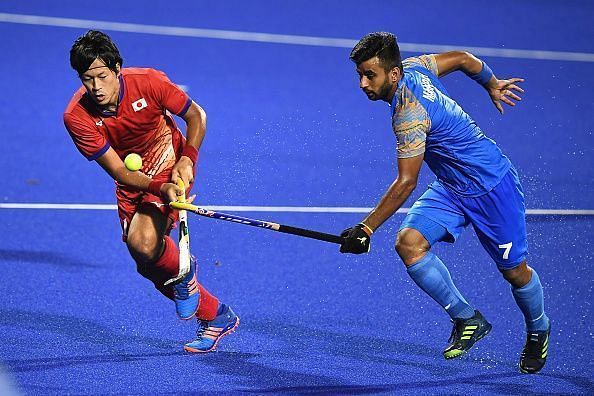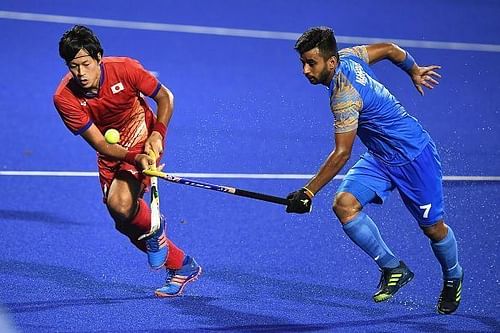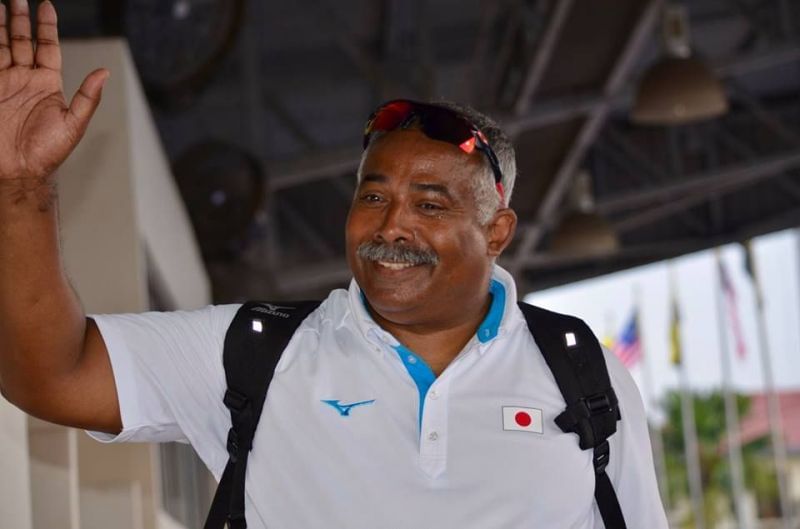
FIH Series Finals: "Challenging India is a must since they are Asia's best," says Japan coach Aikman

At the 2010 Hamburg Masters, it was the Indians who were expected to give European giants Germany and the Netherlands a run for their money, but the surprise package of the four-nation tournament turned out to be Japan, who overcame the mighty Dutch by a 3-2 margin.
At the Uhlenhorster Hockey-Club in Hamburg, Germany, the Japanese also came from behind to hold the Indians to a thrilling 4-4 draw with Kazuhiro Tsubouchi scoring a last-gasp equalizer in the 70th minute.
Siegfried Aikman remembers the moment well.
"My best performance against India was a draw in the Hamburg Masters in 2010," recalls the coach of the Japanese side who hopes that the current bunch can match - or better still overcome the Indians in their own backyard, if indeed the two teams meet in the knockouts of the FIH Series FInals.
As far as the rankings are concerned, the Indians are far ahead - perched in the fifth spot while Japan is ranked eighteenth - but the last couple of encounters have been a lot closer than one would have expected.
The Asian Games gold-medalists were mauled by India in the pool phase at Jakarta but gave their continental rivals quite a scare before going by a 2-3 margin in the semifinals of the Asian Champions Trophy at Doha.
At the Azlan Shah Cup earlier this year, the Indians managed a hard-fought 2-0 win, and in an exclusive interaction with Sportskeeda, coach Siegfried Aikman stresses that in spite of several hurdles like inadequate funding and facilities, challenging Asia's best team is essential for Samurai Japan to make their way up the ladder.
Here are the excerpts of the interview.
SK: Given the fact that Japan does not need to qualify for Tokyo 2020 - and are therefore under no pressure - does that make them a shade more dangerous than the other teams in the FIH Series Finals?
Aikman: No, not at all, because we have the same ambition as all teams, we think. We play to win and to collect the world ranking points. We want to perform to our best abilities at this moment. Due to that, we are in a similar situation like all teams.
Yes, we have qualified, and before the Asian Games, the same question was asked, and also there we were under the same pressure like every other team because performing better than you ever did is not an easy job.
"Our strong spirit and ambitions are not reduced"
SK: In terms of preparations for the Olympics itself, how important is it to able to begin early, and would you consider that to be an advantage over teams who have to concentrate on the qualifiers instead?
Aikman: it could be, but with the little means we have, and the great challenges in organizing camps for the team, it doesn’t matter that we have more time. We cannot use all the time because of lack of facilities and money.
In Japan, teams who are clear medal winners get all the support, and others less. We are not identified as a potential medal winner, and so the budget is substantially reduced. We have great challenges in even having a decent preparation.
Our spirit and ambitions are not reduced, so we try to make the best of what we can rely on - the strong belief that a strong mind will allow one to write their own never-ending story, in which everything is possible.
"With each match, we are closing the gap with India"

SK: Your side lost 0-2 to India in a close encounter at the Azlan Shah Cup, but that was a pool match whereas this time around a clash in the finals (or semifinals) is likely. Are the Japanese boys focused on trying to beat India at home, and how big an achievement do you feel that would be if your boys manage the feat?
Aikman: In the Sultan Azlan Shah, we did our best, as always, to achieve a good result, and with each match, we are closing the gap with India, but the gap is still there. When we played all or nothing, India immediately scored their second goal.
We do well, but not consistently, and that is part of our growth process. We really want to challenge India because they are the best team in Asia, and much higher ranked then Japan who was always ranked sixth in Asia. Slowly, we are moving up to the top three, and of course, we want to become number one.
Therefore, we need to challenge the current number one. Hopefully, we can. Yes, it would be a dream come true but only when it happens consistently.
Aikman stresses that the points system is loaded in favour of the Pro League teams
SK: South Africa is ranked two spots ahead of Japan. You were at Bhubaneswar for the World Cup, where the South Africans failed to make the crossovers. How confident are you of topping the pool?
Aikman: We don’t know if we can but we certainly want to top the pool. In our last match, South Africa beat us. Would be great if we can change it. We want to grow to the level of a top 10 team because then everything is possible in the Olympics.
Unfortunately, we have few options to gain points for those rankings, and due to the Pro League, it is almost impossible for us to achieve that ranking even when we win. Saying this doesn’t mean that we give up - because Samurai Japan never gives up!
SK: You were in Korea recently. How do the facilities at the Kalinga Stadium match up with those at Jincheon?
Aikman: The Kalinga Stadium is extraordinary and so are the facilities in Korea. Korea is a training centre, and therefore incomparable with the Kalinga Stadium which is a superb stadium. It’s a privilege to have had the opportunity to work in both the facilities. Love Odisha and Korea - both inspired us to live our dreams.